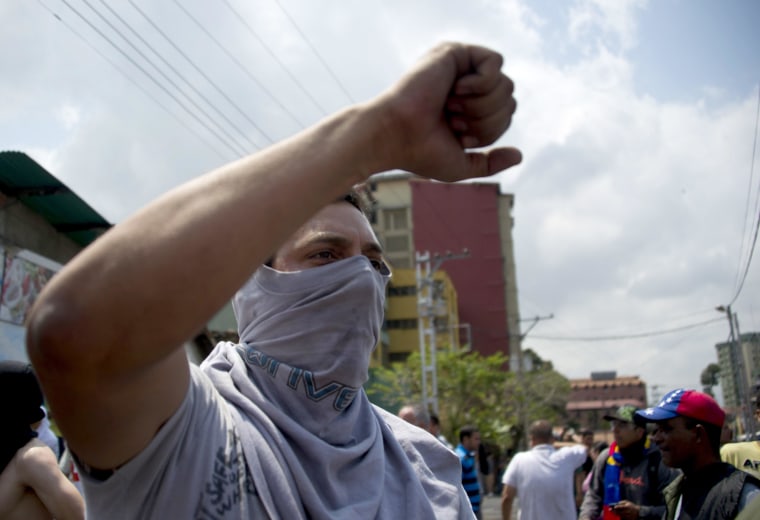The recent clashes in Venezuela, which left 11 dead and over 100 injured, has put the South American country in the international community's spotlight. In the U.S., thousands of Venezuelan-Americans who oppose President Nicolas Maduro's government have held rallies in solidarity with the protesters, and the country's troubled economy is the focus of much scrutiny.
The question is what happens next - not just for Maduro, but also for the opposition?
"Clearly the economic situation has deteriorated to the point where there are popular and deep frustrations with the government," said Christopher Sabatini, senior director of policy at the Americas Society/Council of the Americas (AS/COA) and editor-in-chief of Americas Quarterly. Yet Sabatini says even moderate chavistas may not align themselves with an opposition that has been stridently anti-Chavez. "And how you square the middle is unclear."
The question is what happens next - not just for Maduro but also for the opposition.
Sabatini said Maduro has several significant challenges ahead of him. One is that he must open up avenues of freedom of expression and protest, despite the fact that these will be used by the opposition. Secondly, he has to carve out a more politically moderate and less polarizing position.
"If you look at his rhetoric, he is denouncing the opposition as fascist and spoiled rich kids...If I were a betting man, I wouldn't be betting on Maduro softening his position of power sharing. But for his own survival, it may dictate he do otherwise," said Sabatini.
Thirdly, he believes Maduro must address the extreme overvaluation of the Venezuelan currency, the bolivar, and the scarcity of basic goods.
George Ciccariello-Maher, author of "We Created Chavez: A People's History of the Venezuelan Revolution," said he thinks that in the short term, the protests will taper off. Carnaval, one of the most anticipated events of the year, takes place next week.
But while the situation may stabilize, Maduro has to address the inflation and exchange rate issues dogging the country, said Ciccariello-Maher. Cronyism, which often comes with a "petro" state (Venezuela has large oil reserves), remains one of Maduro's greatest challenges, and is one of the main complaints cited by Venezuelan-Americans who are critical of the government.
"I come from a generation of professionals where if you studied hard you had a chance. Now it's an economy adrift - it's who you know," said Miami resident Mireya Granadillos last week.
Moises Naim, who was a minister of trade in Venezuela in the 1990s before Chavez and who is currently at the Carnegie Endowment for International Peace, wrote in Spain's El Pais that Venezuela "is the world champion in inflation, homicide, citizen insecurity and the shortages of necessary goods."
Yet the government's opposition has its challenges, the main one being it has not been a united front.
"If you look at Wikileaks, among the opposition, Lopez was hated second only to Chavez. He was seen as an egotistical pretty boy," said Ciccariello-Maher of Leopoldo Lopez, the opposition leader who turned himself in to government authorities last week. "There is a big division between moderates and hardliners, and Lopez is more of a hardliner."
For the opposition to become a majority, they will have to win over centrist Chavistas, he added. "It will take a tremendous amount for a real Chavista to switch sides."
Yet the government's opposition has its challenges, the main one being it has not been a united front.
Yet images of a slumped over beauty queen being taken to a hospital on a motorcycle - one of the 11 people killed during protests - and the reports of an Internet and media blackout have put the Maduro presidency on the defensive.
After telling CNN Español it had to leave the country, the government has changed its mind.
Maduro invited opposition leader Henrique Capriles to a meeting on Monday and has proposed a peace conference for Wednesday.
For Venezuelan-Americans, the situation can be summed up in a few words.
"There is so much uncertainty," said Natali Fani-Gonzalez, a Venezuelan-American living in Maryland.
